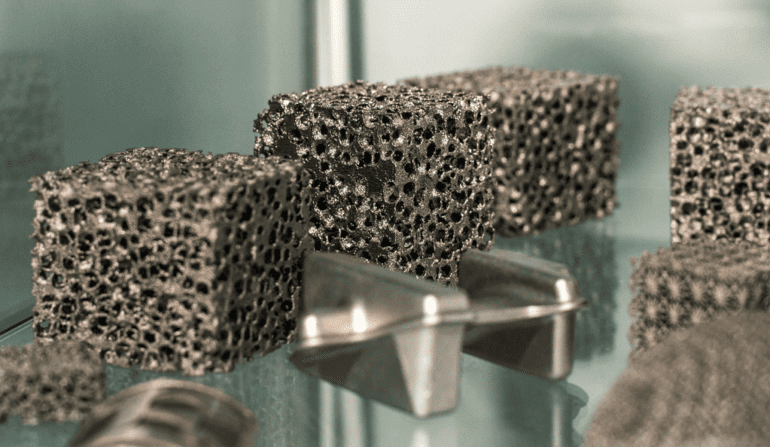TL;DR:
- Senvol demonstrates a machine learning approach to material allowables development for Additive Manufacturing (AM).
- The approach offers greater flexibility, cost-effectiveness, and time efficiency compared to conventional methods.
- The demonstration was part of a US Government contract, empowering Senvol to apply their machine learning software, Senvol ML, for rapid material property allowables development.
- Senvol collaborated with industry partners and technical advisors to showcase the effectiveness of the approach.
- The machine learning approach accommodates changes in the AM process, making it ideal for long-term sustainability.
- The program focused on using a Powder Bed Fusion AM machine and 17-4 PH Stainless Steel material.
- Senvol’s success demonstrates the potential of machine learning in material allowables development, with broad applications across industries.
- The use of machine learning specifically for material allowables is an area that requires further research, but the benefits are substantial.
Main AI News:
In a groundbreaking development, Senvol, a New York City-based company, has successfully showcased a machine learning approach to material allowables for Additive Manufacturing (AM). This cutting-edge method promises greater flexibility, cost-effectiveness, and time efficiency compared to the conventional approach employed in the industry.
The demonstration of this groundbreaking approach was made possible through a US Government contract, W911NF-20-9-0009, awarded to Senvol. The contract empowered them to leverage their machine learning software, Senvol ML, in expediting the development of material property allowables for Additive Manufacturing. Senvol collaborated with esteemed partners, including EWI, Pilgrim Consulting, Battelle, and Lockheed Martin Fellow Hector Sandoval, who served as technical advisors on the program. The National Center for Manufacturing Sciences (NCMS) oversaw the administration of the contract through the AMMP Other Transaction Agreement (OTA) program.
Senvol’s demonstration involved an innovative approach to material allowables development, utilizing the power of machine learning. The machine learning approach exhibited remarkable flexibility, enabling it to adapt to any changes in the AM process. This adaptability makes it an ideal solution for long-term sustainability. The program’s primary focus was the utilization of a Powder Bed Fusion AM machine to process 17-4 PH Stainless Steel material.
Annie Wang, the President of Senvol, emphasized the significance of this advancement, stating, “Material allowables development is a very expensive and time-consuming endeavor. Senvol’s program was very successful in demonstrating a new approach to additive manufacturing allowables development that leverages machine learning. We were very pleased with the results and look forward to continued work in this cutting-edge area.”
One of the key barriers to fully realizing the benefits of lightweight and rapidly produced designs enabled by AM is the time and high cost associated with allowables development. The current process incurs substantial expenses due to the generation of extensive empirical data required at fixed processing points. Each time a major change occurs in the process, all the empirical data must be regenerated from scratch. Consequently, implementing and maintaining an AM process becomes not only costly and time-consuming initially but also, in the long run, when changes in the AM process are inevitable.
Hector Sandoval, who assessed the AMMP program’s technical approach and test results, shared his perspective, stating, “I have experience developing material allowables using traditional methodologies. The current process works well, but there are some limitations. It was exciting to support the AMMP program by reviewing the technical approach, test results, and final presentation. It was great to get a first-hand look at the potential of leveraging a machine learning-based approach to help establish material allowables.”
The Senvol ML software, which facilitates the qualification of AM processes, played a crucial role in the program by developing statistically substantiated material properties analogous to material allowables. Notably, the software is highly adaptable and can be applied to any AM process, machine, or material. However, due to budget and programmatic constraints, this project did not generate true allowables, necessitating several simplifying decisions.
Zach Simkin, President of Senvol, expressed his optimism about the potential of machine learning in material allowables development. He stated, “The use of machine learning for Additive Manufacturing process and material development is very mature. This has been adopted by industry and is the low-hanging fruit. The use of machine learning specifically for material allowables development, however, is still a work in progress. I’m pleased that we have now made two successful demonstrations of the machine learning approach to allowables – once in this program using a metal alloy and comparing to MMPDS, and once in a prior program funded by America Makes that used a polymer material and compared to CMH-17 – but more research is needed. The upside is tremendous, and we look forward to continuing to partner with the Government and industry to advance work in this area.”
Dr. William E. Frazier, a retired Chief Scientist for Air Vehicle Engineer at NAVAIR and currently the President of Pilgrim Consulting LLC, commended Senvol’s machine learning-enabled approach, addressing a major industry challenge in the rapid and cost-effective development of Additive Manufacturing material property allowables. Dr. Frazier’s extensive experience with the qualification of various AM processes and materials for flight underscores the positive impact that further advancements in this technology will have on the cost, schedule, and performance of both defense and commercial platforms.
Conclusion:
Senvol’s breakthrough machine learning approach for material allowables in Additive Manufacturing is poised to disrupt the market. The flexibility, cost-effectiveness, and time efficiency offered by this approach address the industry’s challenges in a highly promising manner. With the demonstrated success of Senvol’s program and its potential applications in various sectors, including aerospace, defense, and automotive industries, the market can expect significant advancements and partnerships in the field of AM material development.

